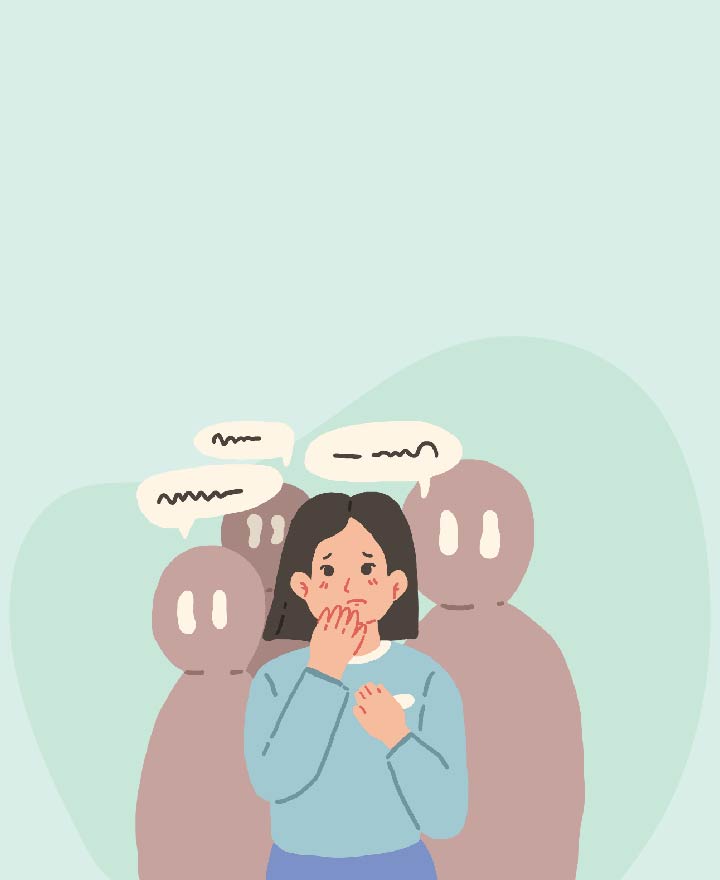

What are the different types of schizophrenia?
Schizophrenia is a chronic mental health condition that interferes with a person’s perception of reality and causes emotional difficulties, trouble thinking rationally and clearly, and develops challenges in relationship with others. Thought- and behavior-related symptoms, such as delusions and hallucinations, determine the classification of the different types of schizophrenia. Nowadays, schizophrenia is no longer divided into subtypes but is considered a spectrum. Here, you will learn about the former subtypes of schizophrenia. You will also learn about the symptoms and other conditions related to schizophrenia.
Types of Schizophrenia
There are several types of schizophrenia. The most common are as follows:
• Paranoid schizophrenia
This form of schizophrenia may develop later in life than other forms. Symptoms include hallucinations and delusions, but speech and emotions may not be affected.
• Hebephrenic schizophrenia
Disorganised schizophrenia, also known as hebephrenic schizophrenia, usually develops between the ages of 15 and 25. It is characterised by disorganised behaviour and thoughts, accompanied by short-lived delusions and hallucinations. You might experience difficulties in communicating as you may have disorganised speech patterns. People with disorganised schizophrenia may display very little or no emotions in their facial expressions, tone of voice, or gestures.
• Catatonic schizophrenia
This type of schizophrenia is the rarest and is characterised by sudden, limited, and unusual movements. Individuals may alternate between being very active or very still. They may also have trouble with speech and imitate the speech and movements of others.
• Undifferentiated schizophrenia
If a person’s diagnosis shows signs of paranoid, hebephrenic, or catatonic schizophrenia, but it does not fit neatly into any one of these categories, it can be termed undifferentiated schizophrenia.
• Residual schizophrenia
You may be diagnosed with residual schizophrenia if you have a history of psychosis but only experience the negative symptoms (such as slow movement, poor memory, lack of concentration and poor hygiene).
• Simple schizophrenia
Negative symptoms, such as slow movement, poor memory, and poor hygiene, are more prominent and tend to worsen over time. On the other hand, positive symptoms, such as hallucinations, delusions, and disorganised thinking, are rarely experienced.
• Cenesthopathic schizophrenia
Individuals with cenesthopathic schizophrenia undergo atypical bodily sensations.
• Unspecified schizophrenia
Symptoms that meet the general conditions for a diagnosis but do not fit into any specific category define unspecified schizophrenia.
Related Disorders
Some more disorders fall under the schizophrenia spectrum. Those related disorders are as follows:
• Schizoaffective disorder
• Delusional disorder
• Brief psychotic disorder
• Schizophreniform disorder
• Schizoaffective disorder
Conclusion
Schizophrenia is a mental health condition that affects a person’s thoughts and behaviors. A person will only receive a diagnosis of schizophrenia if they display at least two symptoms of schizophrenia for a significant period.
One of the important components of our overall wellness is also being financially secured. Healthcare emergencies can happen any time, but a good health insurance policy can protect you from such uncertain situations. To know more about Wellness and other health related tips, visit the Wellness Corner.
Source: mentalhealth, verywellhealth, medicalnewstoday
Disclaimer: This blog provides general information and discussions about health and related subjects. The information and other content provided in this blog, website or in any linked materials are not intended and should not be considered, or used as a substitute for, medical advice, diagnosis or treatment. Kindly contact your Doctor before starting a new medicine or health regime.
Related Articles
What are the symptoms of Schizophrenia & How is it treated
Does Schizophrenia Get Worse as You Get Older
Mental Health Awareness and Why Does It Matter
Seasonal Affective Disorder - Symptoms & Causes
Published on December 14, 2023














 Health Insurance
Health Insurance  Travel Insurance
Travel Insurance  Car Insurance
Car Insurance  Cyber Insurance
Cyber Insurance  Critical Illness Insurance
Critical Illness Insurance
 Pet Insurance
Pet Insurance
 Bike/Two Wheeler Insurance
Bike/Two Wheeler Insurance  Home Insurance
Home Insurance  Third Party Vehicle Ins.
Third Party Vehicle Ins.  Tractor Insurance
Tractor Insurance  Goods Carrying Vehicle Ins.
Goods Carrying Vehicle Ins.  Passenger Carrying Vehicle Ins.
Passenger Carrying Vehicle Ins.  Compulsory Personal Accident Insurance
Compulsory Personal Accident Insurance  Travel Insurance
Travel Insurance  Rural
Rural